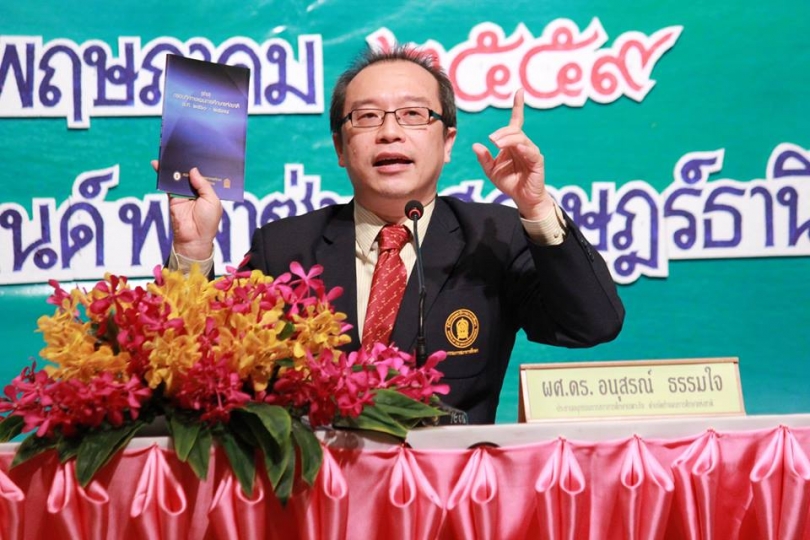New national strategy aims for independence

Public input sought to develop ‘educational democracy’ to last through to the year 2031
THAILAND is currently working on a new national education strategy, which will serve as a guideline on how involved parties should proceed over the next 15 years to give the Kingdom better, brighter educational prospects.
Anusorn Tamajai, who chairs the Education Council’s ad-hoc subcommittee on the formulation of the plan, said recently that the strategy would focus on better access to education, equality, quality, more decentralisation, and greater independence for schools and institutions at all levels including universities.
“The budget and structural overhaul for instance will be geared towards decentralisation,” he said after his team presented the draft of the plan at the final public hearing on May 12 in Surat Thani province.
His team staged four public hearings in four regions on the grounds that education holds such significance for Thailand and its people.
Over the next two weeks, opinions gathered from business organi-sations, student groups, labour organisations, religious bodies and school executives will be used to improve the draft that the Anusorn-
chaired panel has come up with.
Meanwhile, Education Council secretary-general Kamol Rodklai said the formulation of the plan was different from its predecessors as drafters had gathered opinions from stakeholders both before and after the drafting process.
“We wrote our first draft based on their opinions and after completing it, we presented the draft to the stakeholders via public hearings in order to listen to their comments,” he said. “The next step will be to enhance the draft further using useful comments.”
For instance, he said, the drafters had now agreed to not change the status of teachers at state schools from “government officials” to “state employees”.
“As a result we will remove the clauses that require schools to be turned into legal entities. Schools can opt for this transformation as and when they are ready,” Kamol said.
He also said that teachers’ performance would no longer be rigidly linked to students’ performance.
As for the new approach to budget allocation, he said the national education plan would push for education coupons to be issued that students could use to claim free education from schools of their choice.
“The schools can then use these coupons for reimbursement. The allocation of funds, in other words, would be based on demand,” he said.
The Education Ministry, which supervises the Education Council, will present the new national education plan for the Cabinet’s consideration in August.
“The plan will go into effect from October,” Kamol said, adding that it would remain in place until 2031.
Meanwhile, Anusorn said since his team took up the mission of drafting the new national education plan, they had encouraged participation from all stakeholders, not just education officials.
“We expect this input to help deliver educational democracy as well as pave the way for economic democracy,” he said.
Anusorn added that while preparing the draft, his team had also taken into account the various education-related problems in the country, such as the sector’s failure to answer the needs of the labour market and quality issues.
The 15-year national education plan will feature nine strategies. Among them are plans to decentralise power and give more authority to schools, improve the curriculum and assessments, as well as promote lifelong learning.
“For instance, about 80 per cent of the curriculum will be central, while the remainder will be local. In coastal provinces where fishing is the main occupation, local schools can provide lessons on fishing techniques,” Kamol said, adding that at tourist destinations, schools could devote local content to tourism and foreign languages.
He said once the new national education plan is fully implemented, the country would have a great human capital resource.
“We will be like Singapore where the human resource is the ultimate asset,” he said. “Our graduates will have all the skills necessary for the 21st century.”
Aware that earlier and current national education plans have been shelved, Kamol said his team was now considering the option of getting laws passed that would require all parties involved to comply with the new national education plan.
“For instance, if we want the new budget-allocation approach to take effect, we will consult the Finance Ministry and determine how the laws should be written in compliance,” he said.
Kamol added that he believes that Education Minister General Dapong Ratansuwan will back the idea.
RELATED
